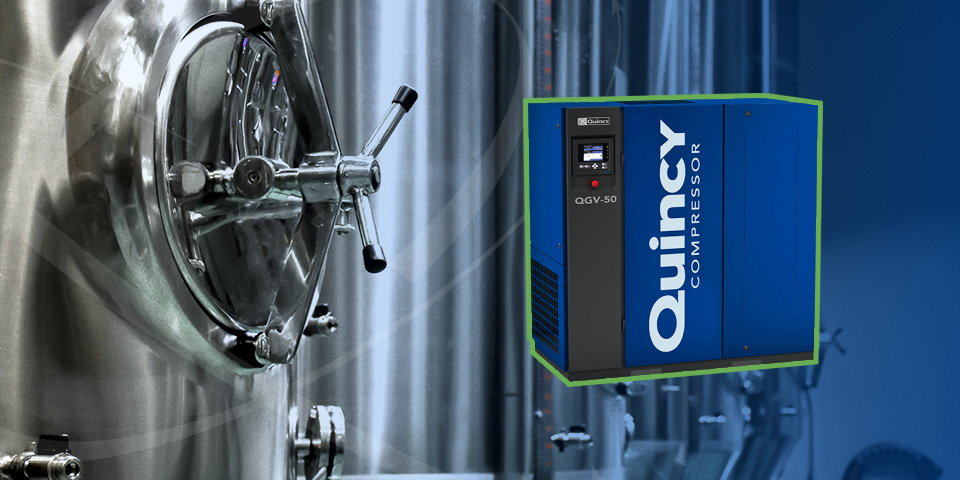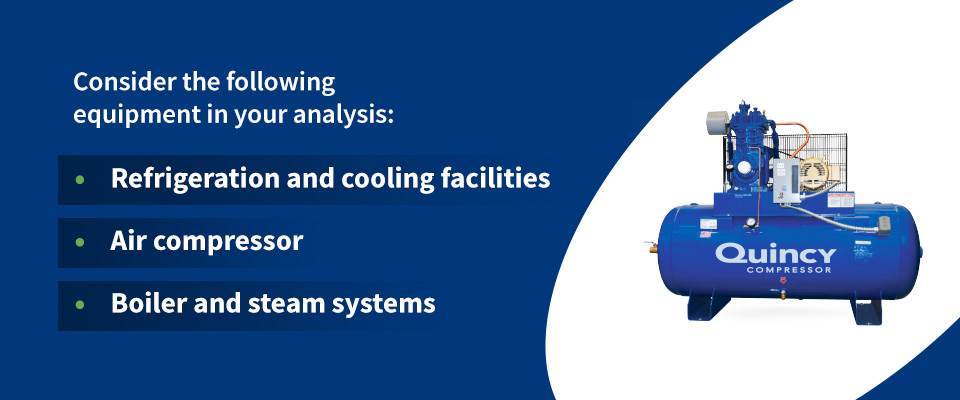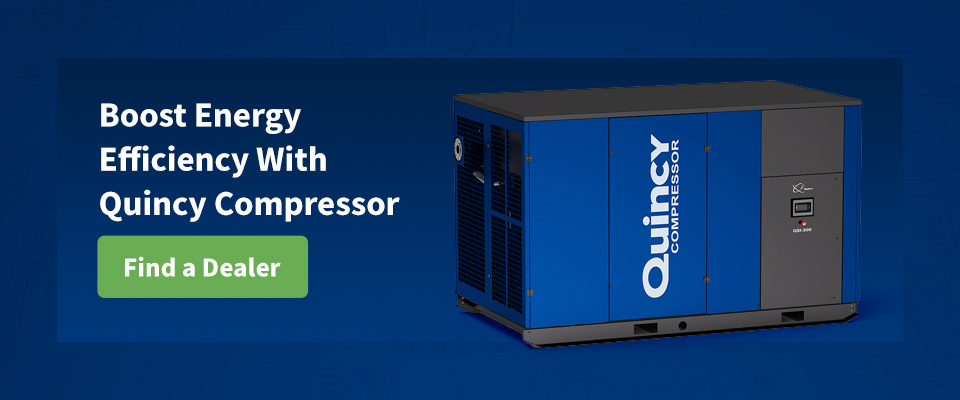
Brewing processes like boiling hops and cooling wort require a substantial amount of energy. One way to stay ahead of the competition is to improve your brewery’s energy consumption and save on monthly bills. Aside from increased energy savings, you’ll reduce your carbon footprint and prime your business for sustainable growth.
Learn about the importance of becoming an energy-efficient brewery and discover the best tips for optimizing your processes.
How Much Energy Does a Brewery Use?
According to the New York State Brewers Association, local breweries and distilleries spend approximately $200 million on energy annually. This figure can total up to 8% of the total production costs, significantly cutting into your profits.
While each stage of the beer manufacturing process uses energy, unnecessary heat loss also contributes to a brewery’s energy consumption. For example, an air compressor uses only 4% of the heat it generates — the other 96% goes to waste. Since air compressors are instrumental in brewing and product packaging, the potential heat loss across production is high. Other contributors to heat loss include outdated equipment, insufficient insulation and inefficient processes.
Why Breweries Should Be Energy-Efficient
All successful businesses minimize overheads to grow their profit margins. Reducing energy consumption during production is one of the most effective cost-saving opportunities for breweries.
Besides reaping the economic benefits of reduced brewery energy consumption, you can use less carbon and enhance brand trust. International beer brands such as Heineken, Carlsberg and Anheuser-Busch InBev have recently pledged to offset their carbon footprint and strive for net-zero practices. These beverage giants have backed their commitment with initiatives like restoring seagrass meadows and using 100% recyclable packaging for increased brand credibility.
Microbreweries may have less influence than household names, but optimizing energy efficiency is a critical first step in becoming more sustainable.
7 Strategies to Improve Energy Efficiency for Breweries
You need a plan to minimize your brewery’s energy consumption. Consider these seven strategies for energy-efficient breweries.
1. Sign up for an Energy Audit
Brewers use complex equipment like fermentation tanks, boil kettles and wort chillers to craft their products. An energy audit analyzes each component’s consumption to determine opportunities for energy savings. Since the results are unique to your brewery, these surveys help you focus your resources where they matter most.
Some states provide financial incentives for energy audits — it’s worth investigating the policies in your area before scheduling a survey.
2. Invest in Energy-Efficient Equipment
Many breweries only upgrade their equipment after contending with frequent downtime. Energy efficiency is another factor to include in your decision, as the long-term energy savings often outweigh upgrade costs. Technological advancements such as heat exchangers, fuel-efficient motors and insulated mash tuns and kettles have revolutionized brewery equipment, making it more energy-efficient.
Your air compressor is one essential piece of equipment to upgrade. Quincy Compressor’s range of variable-speed compressors features innovative designs that regulate speed. By automatically matching the compressor output to the demand, companies gain 35% in energy savings over traditional fixed-speed compressors.
3. Optimize Your Processes
Processes such as purging brewery tanks are notorious for their high energy consumption. However, small changes like adjusting your purge pressure and monitoring oxygen levels with sensors can help you use less energy.
You can find ways to maximize your savings by reviewing your processes. Consider the following equipment in your analysis.
- Refrigeration and cooling facilities: Maintaining low temperatures requires extra energy. Decreasing your temperature by as little as 1 degree Fahrenheit adds up to significant energy savings over time.
- Air compressor: You avoid unnecessary energy consumption by adjusting the air pressure to your application.
- Boiler and steam systems: Adding a water softener to your boiler helps prevent scaling and other buildup that impacts your efficiency.
4. Leverage Insulation
Insulating pipes, condensate return lines and other equipment components offer many benefits to your brewery. Aside from increased energy savings, the National Insulation Association highlights reduced emission, noise control and enhanced worker safety as other notable advantages.
While the upfront insulation cost is substantial, the return on investment can pay off within the first few months.
5. Check for Leaks and Malfunctions
Even if you’ve invested in top-quality brewery equipment, wear and tear will occur over time. For example, a boiler leak or faulty refrigerator seal can lead to increased heat loss.
Scheduling routine equipment inspections is an effective way to spot and repair minor leaks, cracks and other malfunctions before they worsen. Similarly, planning your budget and operations around preventive maintenance ensures more energy efficiency in the long run.
6. Educate Employees on Efficiency
Involve your team in energy-saving initiatives to fast-track your progress. Here are some equipment best practices to include in your training sessions.
- Only using compressed air for mission-critical purposes
- Limiting the time refrigerator doors remain open
- Immediately reporting equipment malfunctions to ensure speedy repairs
7. Switch off Equipment
One of the simplest ways to save on your energy bill is to turn off equipment like your lights, boiler and conveyor belt when they’re not in use.
You can reduce your energy consumption and prolong your assets’ life span by shutting down and cleaning your equipment after every use.
Boost Energy Efficiency With Quincy Compressor
While multiple factors contribute to energy savings in your brewery, investing in energy-efficient equipment can deliver long-term success.
At Quincy Compressor, we pride ourselves on offering clients superior air compressors that generate energy savings between 30% and 35% compared to conventional models. Our QSI industrial rotary screw air compressors, QGV variable-speed air compressors and QR-25 pressure-lubricated products are popular choices for brewery owners nationwide. By leveraging the latest design technology, clients experience optimal performance, versatility and lower operational costs across brewery applications. In addition, our air compressors keep your equipment free of contaminants for better-quality beer.
Whether you brew refreshing India pale ales or robust stouts, our network of professional and knowledgeable air experts will help you find the best compressor for your operations. Contact your local Quincy distributor today!



